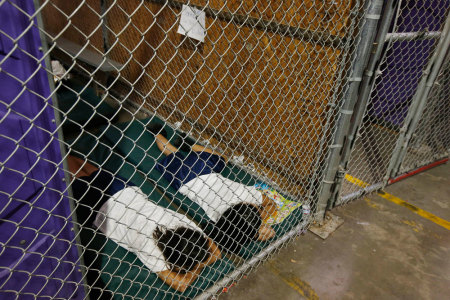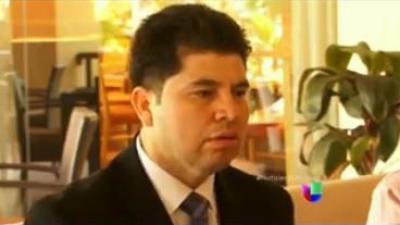Iowa Mennonite Pastor Deported to Honduras After 20 Years in US; Only Crime Was DUI 15 Years Ago

An Iowa Mennonite pastor that was deported back to Honduras last week despite garnering the support of thousands of American citizens, has opened up about his deportation and asserted that he deserved to stay in the country but was instead jailed in deplorable conditions and deported anyway.
After arriving in Honduras Friday, the deported pastor, Max Villatoro, spoke with the spanish-language media outlet Univision about his deportation and the conditions of his detention in the U.S. before he was finally flown out of the country.

The 41-year-old father of four was arrested on March 3 as part of a national Immigration and Customs Enforcement crackdown on about 2,000 unauthorized immigrants who have been convicted of crimes.
In 1999, Villatoro was convicted of drunk driving and tampering with records. But since then, Villatoro became an integral part of the Iowa City community.
After going through his legal troubles, Villatoro got married, started a family and became the pastor of a spanish-speaking Mennonite congregation called Torre Fuerte in Iowa City. After Villatoro was arrested, over 25,000 people signed a petition for him to be released, which was given to immigration officials.
With his wife and kids back home in Iowa, Villatoro vowed that he would keep battling for his right to be returned to the United States.
"I don't think I should be treated as a criminal," Villatoro said. "It's as if it doesn't matter that I overcame my record so I could stay. Overnight they can just arrest you, send you from jail to jail and treat you like an animal."
Before Villatoro was official flown to Honduras, he told Univision that he was kept in a single room with over 400 other immigrants with only a few toilets to go around.
"The last jail I was in [before being deported] had 200 people, and four sinks and four toilets. For 200 people," Villatoro explained.
With President Barack Obama's current immigration strategy focusing on the deportation of criminals while easing on enforcement of immigrant families, Villatoro's lawyer, David Leopold, told Fox News Latino that the pastor should have been treated with more discretion.
"These convictions were in the late 1990s," Leopold, who is the former president of American Immigration Lawyers Association, said. "This is a good man, the worst thing you could say about him is he had a DUI in his life."
Leopold assured that villatoro is a family man and is absolutely no threat to the security of the United States.
"I can't imagine anybody who's more deserving of discretion and falls within the exception to the enforcement priorities," Leopold said in an interview with the Huffington Post. "If he can't qualify as an exception, where there are clearly factors showing he's not a threat to national security or public safety, who will qualify? That's why this was an important test."
President of Church World Service, Rev. John L. McCullough, issued a statement on Friday chastising the ICE's decision to deport Villatoro.
"Our faith teaches us that we are called to forgive and our communities are to be places of redemption and wholeness," McCullough said. "Pastor Max is the first to admit that he made a mistake over 15 years ago, and now ICE has the same opportunity to admit it was wrong and make amends."






















